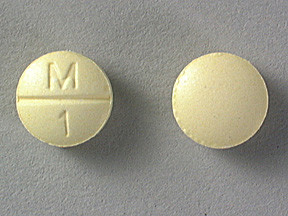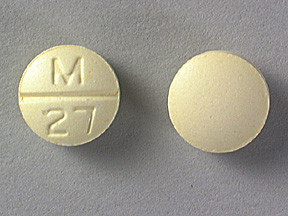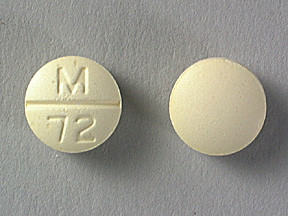CLONIDINE/CHLORTHALIDONE - ORAL
PHONETIC PRONUNCIATION: (KLON-i-deen/klor-THAL-i-done)
COMMON BRAND NAME(S): Combipres
GENERIC NAME(S): clonidine HCl/chlorthalidone
Uses
USES: This product is used to treat high blood pressure (hypertension). Lowering high blood pressure helps prevent strokes, heart attacks, and kidney problems. This product contains 2 medications: clonidine and chlorthalidone. Clonidine belongs to a class of drugs (central alpha agonists) that act in the brain to lower blood pressure. It works by relaxing blood vessels so blood can flow more easily. Chlorthalidone is a "water pill" (diuretic) and causes your body to get rid of extra salt and water. This effect may increase the amount of urine you make when you first start the medication. It also helps to relax the blood vessels so that blood can flow more easily. These medications are used together when 1 drug alone is not controlling your blood pressure. Your doctor may direct you to start taking the individual medications first, and then switch you over to this combination product if this is the best dose combination for you.
How to use CLONIDINE/CHLORTHALIDONE - ORAL
HOW TO USE: Take this medication by mouth with or without food as directed by your doctor, usually once or twice daily. It is best to avoid taking this medication within 4 hours of your bedtime to avoid having to get up to urinate. Consult your doctor or pharmacist if you have questions about your dosing schedule. The dosage is based on your medical condition and response to treatment. If you also take certain drugs to lower your cholesterol (bile acid-binding resins such as cholestyramine or colestipol), take this product at least 2 hours before or at least 4 hours after these medications. Use this medication regularly to get the most benefit from it. To help you remember, use it at the same time(s) each day. It is important to continue taking this medication even if you feel well. Most people with high blood pressure do not feel sick. Do not stop taking this medication without consulting your doctor. You may experience symptoms such as nervousness, agitation, shaking, and headache. A rapid rise in blood pressure may also occur if the drug is suddenly stopped. The risk is greater if you have used this drug for a long time or in high doses, or if you are also taking a beta blocker (such as atenolol). There have also been rare reports of severe, possibly fatal reactions (such as stroke) from stopping this drug too quickly. Therefore, it is important that you do not run out of this medication or miss any doses. Tell your doctor or pharmacist right away if you are unable to take the medication (for example, due to vomiting). To prevent any reactions while you are stopping treatment with this drug, your doctor may reduce your dose gradually. Consult your doctor or pharmacist for more details. Report any new or worsening symptoms right away. When used for a long time, this medication may not work as well and may require different dosing or an additional medication. Talk with your doctor if this medication stops working well (such as your blood pressure readings remain high or increase).
Side Effects
Precautions
Interactions
Overdose
Images
Reviews
Faq for CLONIDINE/CHLORTHALIDONE - ORAL
Clonidine/Chlorthalidone is used to treat high blood pressure (hypertension).
Clonidine lowers blood pressure by stimulating certain receptors in the brain to reduce nerve signals that narrow blood vessels. Chlorthalidone is a diuretic (water pill) that helps the kidneys eliminate excess salt and water from the body, thereby reducing fluid buildup and lowering blood pressure.
The common side effects include dizziness, drowsiness, dry mouth, constipation, headache, and nausea. If any of these side effects persist or worsen, it is important to consult a healthcare professional.
It is important to inform your doctor if you have any allergies, kidney problems, heart disease, or if you are pregnant or breastfeeding. Additionally, be cautious when driving or operating machinery as Clonidine/Chlorthalidone may cause dizziness or drowsiness.
Clonidine/Chlorthalidone is usually taken by mouth once a day or as directed by your doctor. It can be taken with or without food. It is important to follow the prescribed dosage and do not stop taking the medication without consulting your doctor.
Inform your doctor about all the medications you are taking, including prescription drugs, over-the-counter medicines, and herbal supplements. Certain medications may interact with Clonidine/Chlorthalidone and affect its effectiveness or increase the risk of side effects.
If you miss a dose, take it as soon as you remember. However, if it is close to the time for your next dose, skip the missed dose and resume your regular dosing schedule. Do not double the dose to make up for the missed dose.
It is important to discuss with your doctor if you are pregnant or planning to become pregnant, as Clonidine/Chlorthalidone may not be safe during pregnancy. As for breastfeeding, it is generally not recommended to use this medication while breastfeeding as it may pass into breast milk and harm the nursing baby.
The full effect of Clonidine/Chlorthalidone may take several weeks to be achieved. However, it is essential to continue taking the medication as prescribed even if you feel well, as high blood pressure often has no symptoms.
Disclaimer
IMPORTANT: HOW TO USE THIS INFORMATION: This is a summary and does NOT have all possible information about this product. This information does not assure that this product is safe, effective, or appropriate for you. This information is not individual medical advice and does not substitute for the advice of your health care professional. Always ask your health care professional for complete information about this product and your specific health needs.



No Reviews Yet